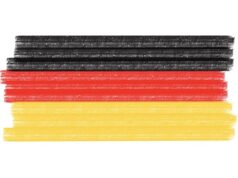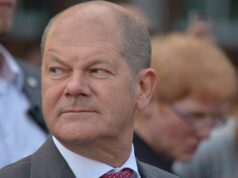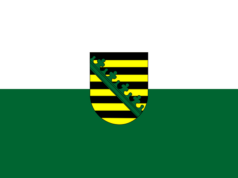The state of Hesse no longer rules out driving bans for older diesel vehicles on five stretches of road in Frankfurt city center. The affected roads include sections of bleach, Kurt Schumacher, Konrad Adenauer and Battonnstraße and parts of the Eschersheimer road. According to the Hessian Ministry of the Environment, it is the top priority of the state that the limit values are complied with in Frankfurt in order to prevent a nationwide driving ban.
The country reacts with this step to the German environmental aid, which has made the proposal in Frankfurt as a first step to block individual roads, as it is already considered for Darmstadt. The German environmental aid had obtained on September 5 in court that threatened in Frankfurt on 1 February a nationwide driving ban for older diesel vehicles with Euro 4 standard and older gasoline cars and from 1 September for diesel vehicles with Euro 5 standard.
In order to prevent the nationwide driving ban for older diesel vehicles and petrol engines – which would affect 85,000 vehicles in the city of Frankfurt and tens of thousands more commuters from the surrounding area – the state of Hesse has now agreed a catalog of action together with the city of Frankfurt. The aim is to work with this offer to first reach the administrative court Kassel the admission of the appeal against the judgment of the Wiesbaden administrative court on 5 September. In contrast, the environmental aid wants to obtain by interim request that a driving ban applies from 1 February, initially possibly only on individual roads.
The catalog of actions agreed by the city and state on Monday in Wiesbaden includes higher parking fees also outside the city center and further private bus lanes, for example on the inner-city section of the Mainzer Landstraße between Karlstraße and Alter Oper. In addition, there will be more gate windows to regulate the entrance of vehicles to Frankfurt better. It also proposes the expansion of the cycle path network, the conversion of regular buses and additional park & ride parking on the outskirts and in the surrounding area. In addition, the steps of the federal government would come to hardware retrofits, the Ministry of the Environment.
The meeting in Wiesbaden had taken place on Monday at the invitation of the state government in the presence of three ministers – including the two Green Environment and Transport Minister Priska Hinz and Tarek Al-Wazir and State Chancellery Axel Wintermeyer (CDU) – and together with representatives of the Frankfurt city government , Although Department of Transportation Klaus Oesterling (SPD) reportedly against all collusion, the consideration of road-related driving bans promptly blabbered, was everywhere a „good, constructive conversation“ the speech.
Frankfurt is looking for a „close alliance“ – unlike Darmstadt
Frankfurt Environment Commissioner Rosemarie Heilig (The Greens) said that the top common goal is to avert a driving ban that could apply to the entire Frankfurt environmental zone. The city government made it clear yesterday in the coalition round that the city of Frankfurt was „very grateful“ for the state initiative for cooperation. Unlike the city of Darmstadt, Frankfurt seeks „a close alliance“. She was „not amused“ that Oesterling did not stick to collusion. The Frankfurt should not be unnecessarily unsettled.
According to Oesterling, there is a simple explanation for the fact that just the mentioned five road sections are to be closed for older diesel vehicles, although one expects an excessive nitrogen oxide load on 116 road sections in Frankfurt: Even with implementation of all announced steps to reduce nitrogen oxide Values were to be expected to still be exceeded on these busy roads in narrow street canyons.
Heilig has meanwhile expressed in a letter to Federal Transport Minister Andreas Scheuer (CSU) against his proposal to control driving bans via digital surveillance together with the Greens environmental department of Darmstadt, Wiesbaden, Giessen and Kassel. For years the cities demanded a blue sticker. It was just as practicable as the Green Badge used to reduce particulate matter in 58 cities with environmental zones. Instead, under the guise of protecting the environment and health, citizens‘ fundamental rights should be deeply intervened. That was a „scandalous data collection“.



